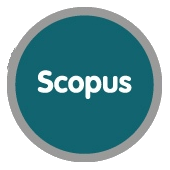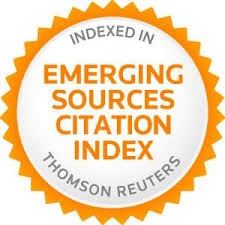Dificultades de los profesores de ciencias turcos de niños bien dotados: los Centros de Ciencia y Arte
Resumen
Palabras clave
Texto completo:
PDF (English)Referencias
Angelo, A., & Cross. K. P. (1993). A Handbook for College Teachers, Classroom Assesment Techniques, (2nd Edition) San Francisco: Jossey-Bass Inc., Publishers.
Archambault., F. X., Westberg, K. L., Brown, S. W., Hallmark, B. W et al. (1993). Classroom practices used with gifted third and fourth grade students, Journal for the education of the gifted 16(2), 103-119.
Bell. J. (1989). Doing Your Research Project: A Guide for First Time Researches in Education and Social Science, The Open University Press.
Betts, G. (1986). The autonomous learner for the gifted and talented. In J.S. Renzulli(ed) System and models for developing programs for the gifted and talented (pp 27-56) Mansfield Center, CT: Creativ Learning Press.
Çepni, S. & Gökdere, M. (2002, May). Profiles of The Gifted Students In Turkey, Education: Changing Times, Changing needs" First international conference on education. Faculty of education Eastern Mediterranean University Gazimagusa, Turkish Republic of Northern Cyprus.
Çepni, S., Gökdere, M., & Küçük, M. (2002, September). Development of sample activities with Purdue model for gifted students at science area, Fifth National Science and Mathematics Education Symposium, Middle East Technical University, Ankara, in Turkey.
Çepni, S., Şan, M. H., Gökdere, M., & Küçük, M. (2001, September). Development of sample activities in science teaching based on constructivist 7E Model, Science education symposium at the beginning of new century, University of Maltepe, İstanbul, in Turkey.
Clifford. J. A., Runions. T., & Smyth. E. (1986). The Learning Enrichment Service (LES): A Participatory Model For Gifted Adolescents. In J.S. Renzulli(ed) System and models for developing programs for the gifted and talented Mansfield Center, CT: Creativ Learning Press.
Cohen. L., & Manion, L. (1989). Research Methods in Education New York, Routledge.
Colette, A. T., & Chiappetta, E. L. (1989). Science Instruction In The Middle and Secondary Schools, Merrill Publishing Company, USA.
Feldhusen, J. F. (1997). Educating teachers for work with talented youth. (In N. Colangelo & G. A. Davis (Eds). Handbook of gifted education (2nd Edition p. 547-552) Boston: Allyn & Bacon).
Feldhussen, J. F. (1986). A Conception of Giftedness: Conception of Giftedness. In RJ. Steinberg, J.E Davidson (Eds), Conception of Giftedness. New York: Cambridge University press.
Feldhussen, J., & Kolloff, P. B. (1986). The Purdue three-stage enrichment model for gifted education at the elementary level In J.S. Renzulli (ed) System And Models For Developing Programs For The Gifted And Talented Mansfield Center, CT: Creativ Learning Press.
Gallagher, J. (1998). Accountability for Gifted Students, Phi Delta Kappan, 79 (10) 739-741.
Ganschow, L., Weber, B. D., & Davis, M. (1984). Pre service teacher Preparation For Mainstreaming, Exceptional Children, 51(1) 74-76.
Gökdere, M., & Çepni, S. (2003). Teachers' Role in Values Education for Gifted Children, Journal of Values Education,1(2) 93-107.
Gökdere, M., & Küçük, M. (2003). Science Education of Gifted Students at Intellectual Area: A Case For Science and art centers, Educational Science: Theory & Practice, 3(1) 101-124.
Jordan, E. T. (1962). The Exceptional Child. Charles E. Merrill Books Inc. Columbus. Ohio.
Küçük, M. (2002). Implementation of an action research course program for science teachers: a case study, Unpublished master dissertation, Karadeniz Technical University, Turkey.
Maryland, S. P. (1971). Education of gifted and talented (2 Vols), Washington D.C: US Government Printing office.
Painter, J. (1996). Questioning Techniques for Gifted Students. The Australian Association For The Education Of The Gifted And Talented. Proceedings From The National Conference In Adelaide, South Australia
Renzulli, J. S. (1999). What is thing Called Giftedness and How Do We Develop it? A twenty- Five Year Perspective, Journal for the Education of Gifted, 23 (1) 3-54.
Renzulli, J.(1985). Are teacher of gifted specialist? A land mark decision on employment practices in special education for gifted. Gifted Child Quarterly, 29, 24-29.
http://dx.doi.org/10.1177/001698628502900105
Schultz, R. A. (2000). Examining the Effects of Block scheduling on Gifted and Talented Student, Gifted Child Today 23 (5) 24-33.
Schwizer, V. (1994). A Rich offering of Enrichment Programs, European Education 26(3) 64-69.
http://dx.doi.org/10.2753/EUE1056-4934260364
Sherwood, M. (1996). Pre service teachers' attitudes to and awareness of gifted learning disabled pre-scholars. The Australian Association for the education of the gifted and talented. Proceedings from the national conference in Adelaide, South Australia.
Sisk, D. (1987). Creative Teaching of Gifted. Mc Grav-Hill Book Company.
Witty, P.A. (1958). Who are the gifted? In N.B. Henry (Ed), Education of gifted. Fifty-seventh Yearbook of the National Society for the study of education, Part 2. Chicago University of Chicago Press
http://dx.doi.org/10.1037/13174-003
Enlaces refback
- No hay ningún enlace refback.


